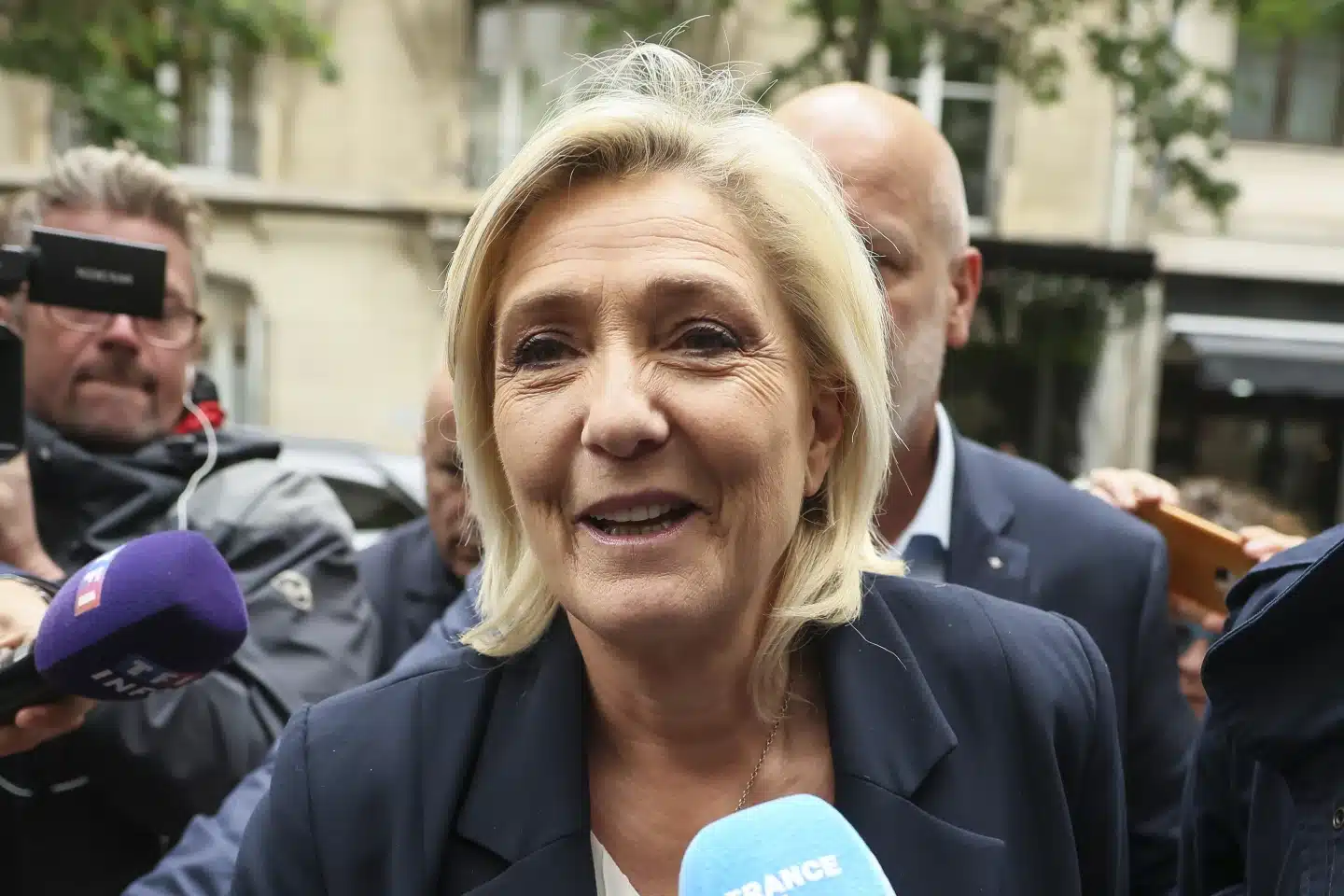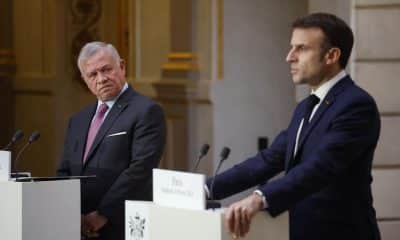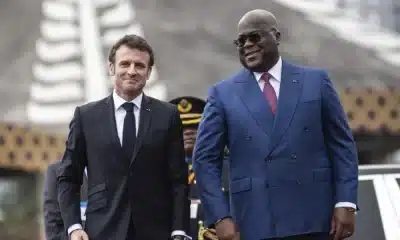U.K News
Macron Hopes To Contain Far Right In National Elections After It Surged In EU Vote. It’s A Risky Bet

The extreme right’s surge in France’s European Parliament elections was largely expected. What occurred next was not.
French President Emmanuel Macron announced early parliamentary elections, saying he couldn’t ignore the new political reality after his pro-European party suffered a humiliating defeat and is expected to receive less than half the support of Marine Le Pen’s National Rally.
He expects people to work together to limit the far right in national elections, as in European ones.
However, Sunday’s decision to dissolve parliament and send voters who had recently shown dissatisfaction with Macron’s ideology to the polls was a hazardous move that could result in the French extreme right running a government for the first time since WWII.
Macron | AP News Image
Macron Hopes To Contain Far Right In National Elections After It Surged In EU Vote. It’s A Risky Bet
Macron, who has three years left in his second and final presidential term, would have to find a way to collaborate with a prime minister from a party that strongly rejects most of his programs.
Here are the reasons for the shift.
How did French voters cast their votes?
The far-right National Rally, led by 28-year-old Jordan Bardella, is expected to gain the most French seats in the European Parliament, potentially 30 of France’s 81, according to a provisional count, with more than 30% of the vote.
That would be the culmination of a makeover campaign aimed at appealing to centrist voters in the wake of decades of racist and antisemitic sentiments made by National Front leaders.
According to the most recent projections, Macron’s Renaissance party has fewer than 15% of the vote, only ahead of the Socialists, whom the French president thought he had eliminated from the political landscape when he was elected president in 2017.
The communist France Unbowed party might come in fourth place with roughly 10% of the vote, while the conservative Républicains could get about 7%.
Why did Macron call the French election?
Macron’s centrist party was the largest in the National Assembly, the lower chamber of parliament, but it lost its majority in 2022, forcing parliamentarians to collaborate with politicians from both the left and right to pass legislation.
According to his aides, in the wake of the extreme right’s resounding success in the European elections, Macron called the election because he believed the results would lead to legislative stalemate and render him a lame duck leader three years before the next presidential election in 2027.
Yaël Braun-Pivet, president of the National Assembly, emphasized the president’s desire to demonstrate his responsiveness to voters. “We are told too often that we do not hear, that we are cut off from the people, and there, the president took a decision following a very clear vote by the French,” Braun-Pivet stated on Monday.
What are the risks?
French Foreign Minister Stéphane Séjourné stated that Macron’s decision to call elections is not “a poker move.” However, with a bitterly fragmented left and millions of voters no longer afraid of National Rally’s agenda, counting on a popular uprising against the extreme right three weeks before the election appears to be a high-risk gamble.
Macron | AP News Image
Macron Hopes To Contain Far Right In National Elections After It Surged In EU Vote. It’s A Risky Bet
The National Rally, with its anti-immigrant agenda, has grown to become the largest parliamentary opposition group in the lower chamber. Le Pen has advanced to the second round of the presidential election twice, following in the footsteps of her father, Jean-Marie Le Pen, in 2002. The normalization campaign has paid effectively, and the party has become mainstream, with a solid network of officials throughout France.
The two-round system for general elections has historically made it difficult for extremist parties to gain traction since mainstream parties collaborate to isolate those on the periphery. But that method might not work this time. In the most recent general election, Le Pen’s National Rally gained more than ten times as many seats as it did five years before.
Francois Ruffin, a far-left politician, has called on all left-wing leaders, including the Greens, to unify under a single “Popular Front” banner. “To avoid the worse, to win,” he wrote on social media platform X. Others on the left proposed similar cooperation.
However, Raphaël Glucksmann, the lead Socialist candidate, accused Macron of giving in to the National Rally’s demands for the dissolution of the National Assembly. He stated that the action “will remain a stain on Emmanuel Macron’s five-year term, one more,” and criticized the French president for what he considers an “extremely dangerous” game.
Le Pen is riding high.
Le Pen stated she is “ready to turn the country around” after sending Macron into a tailspin.
“We are ready to exercise power if the French people place their trust in us in these future legislative elections,” she told party supporters in Paris.
For years, Le Pen has been the face of the National Rally. However, she stepped back before the European elections, making space for Bardella. The president of Le Pen’s party has now brought it to the threshold of power.
Macron | AP News Image
Macron Hopes To Contain Far Right In National Elections After It Surged In EU Vote. It’s A Risky Bet
Bardella rose quickly to the top after polishing his political talents as president of the party’s youth branch. Although he has been cautious about eclipsing Le Pen, his popularity is growing rapidly, particularly among young people.
On the campaign road, Bardella was frequently greeted like a rock star, with crowds of shouting admirers vying to kiss him or take a selfie.
What happens next?
If another party or alliance wins a majority of seats in the general election, Macron must select a prime minister from that new majority.
In this circumstance, known as “cohabitation” in France, the administration would enact domestic policies that differed from the president’s strategy. However, the French president would significantly influence the country’s foreign and defense policies. Such an arrangement may render France ungoverned.
SOURCE – AP





































